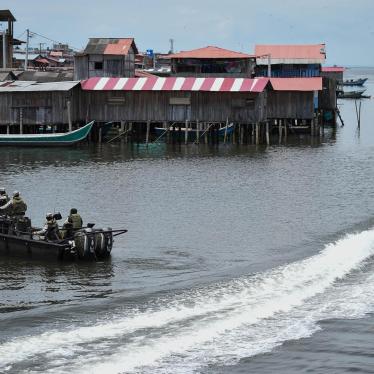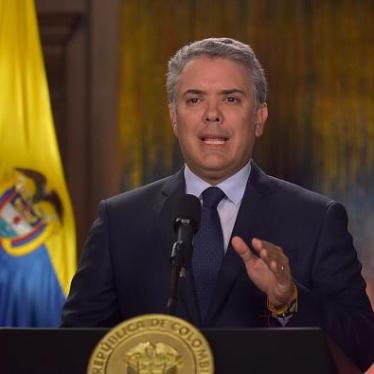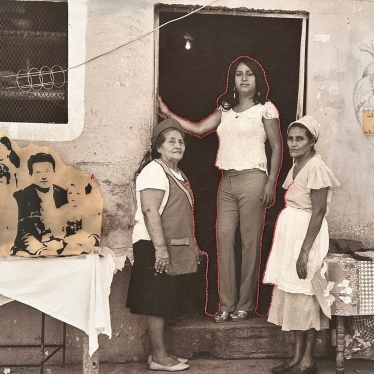A key issue arising out of the peace agreement between the Colombian government and the Revolutionary Armed Forces of Colombia (FARC) guerrillas is the definition of “command responsibility” that the Special Jurisdiction for Peace —the judicial system created as part of the peace talks— will apply when it prosecutes army commanders.
In 2017, the Colombian Congress passed a constitutional amendment containing a “command responsibility” definition that is inconsistent with the one applied under international law. A previous post reviewed the background and lead-up to the approval of that legislation. This post will examine how the controversy has evolved since. The post begins by describing the submission by the Prosecutor of the International Criminal Court (ICC) of an unusual amicus brief to Colombia’s Constitutional Court about the compatibility of the definition with international law. We then summarize the Constitutional Court’s decision upholding the definition in the amendment, before considering an ongoing case involving a former army chief, where the definition is being tested.
ICC’s Prosecutor amicus brief
In September 2017, Fatou Bensouda, the Prosecutor of the ICC (which has the situation in Colombia under preliminary examination), visited the country to obtain clarifications on certain aspects of the Special Jurisdiction for Peace, as well as information on the status of the relevant national proceedings. A month later, she submitted an amicus brief to the Colombian Constitutional Court. The brief was initially filed confidentially, but was leaked to the media and posted online.
While an amicus may seem to be an unusual tool for the ICC Prosecutor, the President of the Colombian Constitutional Court had requested the Prosecutor’s opinion on the legislation. The amicus brief addressed several other aspects of the implementing legislation for the peace accord, but with regard to command responsibility, the prosecutor argued:
- The amendment’s definition requires the commander to have “effective control over respective conduct,” whereas under international law, commanders must have control over the military forces that carried out those actions.
- While under the Colombian legislation commanders would bear criminal responsibility only if the crimes were committed “within the area of responsibility assigned to the unit under his command,” the ICC prosecutor said that this was not a requirement under international law. This could be, she noted, a relevant factor, among many, to assess whether the commander had “effective control,” but not a legal requirement.
- Similarly, international law does not require, unlike the Colombian definition, the commander to have “legal and material ability to give orders, modify them, and enforce them.” Under international customary law, command responsibility hinges on whether the commander had the material ability to control its troops. The commander’s legal ability is not required though it can be among the criteria to determine whether the commander had the material ability.
- The Colombian definition required the commander to have “direct” ability to act on the crimes committed by its troops. But the relevant question under international law, the ICC prosecution said, is whether the commander had the material ability, based on the evidence in the particular case.
- Under customary international law, a commander’s knowledge of crimes committed by their subordinates may be either actual or constructive — that is the commander knew or had reason to know. The Colombian definition, however, requires “actual or updatable knowledge” – language that the prosecutor described as “ambiguous and possibly more restrictive.”
The Constitutional Court ruling
In July 2018, Colombia’s Constitutional Court upheld the constitutionality of the “command responsibility” definition.
The court said that the relevant point of its analysis was not to establish whether the definition of “command responsibility” incorporated into the Constitution reproduced the relevant provisions of ICC Statute formula. Rather, its task was to analyze whether the definition undermined Colombia’s duty to investigate, prosecute and punish serious abuses. The court concluded that it did not for two main reasons. First, the Rome Statute does not, in its view, require specific modes of liability for domestic jurisdictions. Rather, it mandates that certain crimes be prosecuted including through the modes of liability available in domestic law. Second, the Colombian legal system already has existing modes of liability, including theories of perpetration-by-means, co-authorship, instigation and complicity, as well as omission, that can be used to investigate, prosecute and punish those most responsible for the most serious abuses committed in the context of the armed conflict. In short, the court upheld the definition, in part because (as the ICC’s Deputy Prosecutor James Stewart highlighted during his November 2018 trip to Colombia) judges could apply other modes of liability to prosecute commanders responsible for abuses.
A first controversy before the courts
On September 13, 2018, the Chamber for the Definition of Legal Situations of the Special Jurisdiction for Peace carried out a “voluntary submission” hearing of the former head of the army, Mario Montoya Uribe, during which he promised to cooperate with the system. Many considered the hearing historic because it was the first time a former head of the army was brought to a court for extrajudicial killings, known as “false positives.”
There is evidence (including that complied by Human Rights Watch) suggesting that Montoya could bear criminal responsibility for “false positives”, in which troops lured innocent civilians to remote places and killed them to increase their body count. The evidence presented by Human Rights Watch suggests that Montoya knew about these crimes and did not take measures to address them.
During the hearing, Montoya’s defense appealed the chamber’s earlier decision to recognize certain relatives of victims as having standing in the judicial proceeding.
The lawyers argued that these individuals could not be victims with standing in the process. Among their arguments, the lawyers claimed that the units directly involved in these crimes were not “subordinated” to Montoya; instead, they argued, that only officers subordinated to him were the “divisional commanders,” who are higher up in the army’s military structure. The argument was based on language in the “command responsibility” definition limiting the responsibility for commanders to crimes committed “within the area of responsibility assigned to the unit under his command” and when they had “legal and material ability to give orders.”
The chamber ultimately recognized the victims’ standing, without addressing the argument. Montoya’s position suggests, however, that the controversy is still alive and kicking and that the definition of command responsibility approved for use by the Special Jurisdiction may have negative consequences for the delivery of justice.








